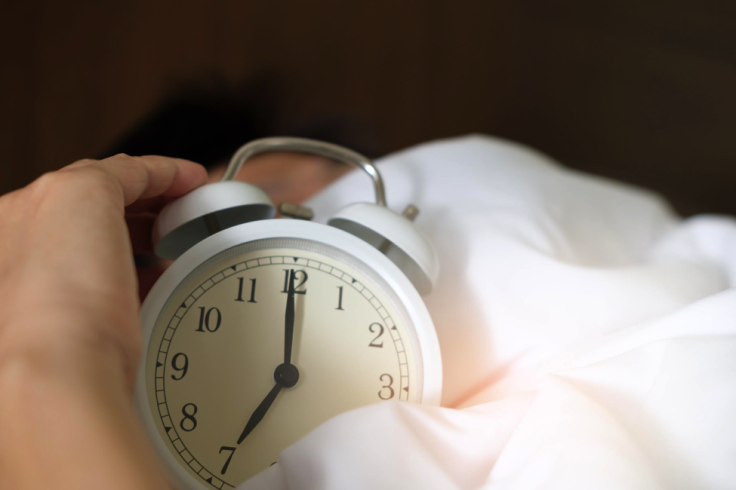
You need good sleep. It's that simple.
Tossing and turning at night can be its own kind of horrible nightmare. And it's not very healthy either. A good night's sleep is just as important as a healthy diet and regular exercise.
There's nothing better than waking up refreshed, renewed, and ready to take on a new day. Make this your norm by adding a few healthy sleeping habits to your daily routine. Check out the five simple tips below to help you make the most of your sleep.
1. Rule out a sleeping disorder
First things first. If you feel like you're not getting enough sleep, you may have a sleeping disorder. And if so, all the clever sleeping tips in the world may not be enough to get your snoozing habits to a healthy place.
Insomnia, sleep apnea, and restless leg syndrome are some of the more common sleeping disorders. In fact, it's estimated 22 million Americans currently have some degree of sleep apnea. And these disorders often do much more than just keep you up at night. Recent studies show they can increase the risk for cognitive disorders, asthma, pregnancy complications, and even heart problems.
There are plenty of online quizzes and resources to help you zero in on your sleeping problems.
But if you've always struggled with sleep, the wisest action is to consult with your doctor.
2. Reduce blue light exposure in the evening
Your circadian rhythm is a 24-hour internal clock that's constantly running in the back of your brain. It cycles you through states of alertness and sleepiness at regular intervals, and naturally tries to keep you on a healthy sleeping schedule. But this balance can be upset by certain activities or environmental factors.
Exposure to blue light, especially right before bed, can send your circadian rhythm haywire. Blue light is typically emitted from most electronic devices like smartphones, tablets, computer monitors, and flat-screen televisions.
There are a ton of little tips to help reduce your exposure to blue light, like wearing protective glasses or even downloading a special app. But the best way to keep blue light from throwing you off your groove is to simply turn devices off a couple of hours before bedtime. Read a book, listen to relaxing music, meditate, and let your natural sleep/wake cycle do its thing.
3. Sleep and wake at consistent times
With good habits and some self-discipline, you can actually keep your schedule in sync with your circadian rhythm. This might be the best strategy you can use to improve your sleep.
Try to go to sleep and wake up at the same time every day. This helps to set your body's internal clock and optimize your quality of sleep. We are creatures of habit after all. If you set good sleeping habits, your body will naturally do the rest of the work for you.
And (as hard as it may sound) you should avoid sleeping in, even on weekends. Any irregularities in your sleep schedule could make it difficult for you to get good sleep. This means you also need to be careful about napping and limit them to 15-20 minutes in the afternoon.
4. Exercise regularly during the day
Studies show people who exercise regularly during the day sleep better at night and feel less sleepy during the day. Make exercise a key part of your daily routine to inspire healthy sleeping habits.
Even light exercise-such as walking 10 minutes a day-can make a difference. It may take several weeks or even months of regular activity to notice the positive benefits. Patience is key. Try to focus on following an exercise routine that's consistent and works for you.
Because exercise can often increase alertness and release hormones like epinephrine and adrenaline, it may be a good idea to avoid exercise a couple hours before bed.
5. Take a melatonin supplement
To complement healthy sleeping habits, you can always look into taking a melatonin supplement.
Melatonin is a key hormone that helps your brain and body relax. Attached to your circadian rhythm, your body naturally releases it when it's time for you to sleep. So it makes perfect sense that taking a melatonin supplement can help you stay in sync with your sleep/wake cycle and feel naturally relaxed. It's especially helpful if you travel often and need to adjust to new time zones.
A variety of melatonin supplements can be purchased in stores or online. Consult your doctor before adding any supplements to your daily routine.
Help your whole family sleep better at night with these tips and healthy habits.
About the Writer
Born and raised in Utah, Taylor Pulver grew up fishing, camping, and hiking his way through the Wasatch Range. Now, he lives in Salt Lake City as a writer, gardener, and avid reader of fantasy and science fiction novels.